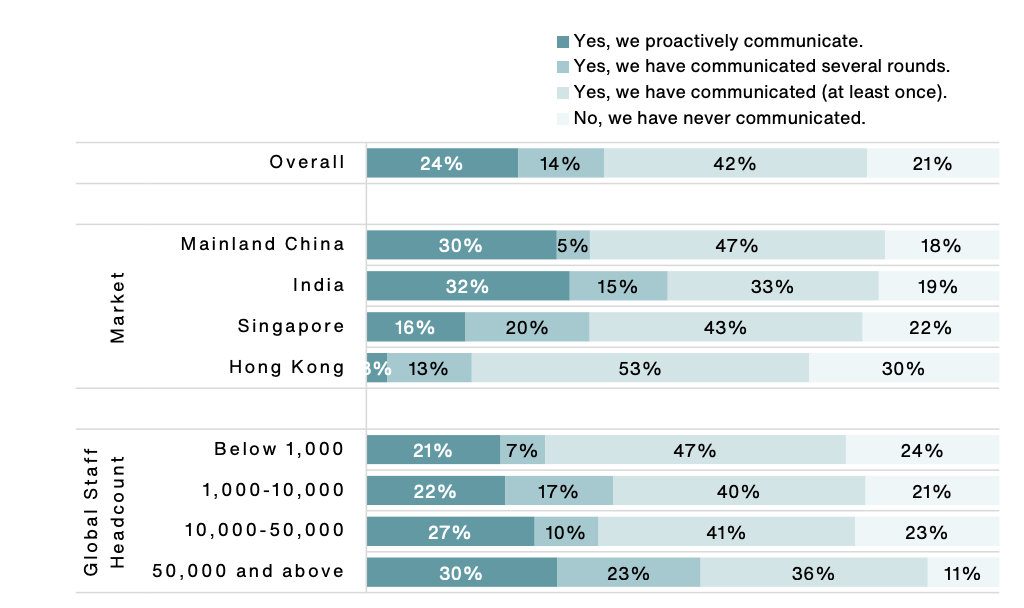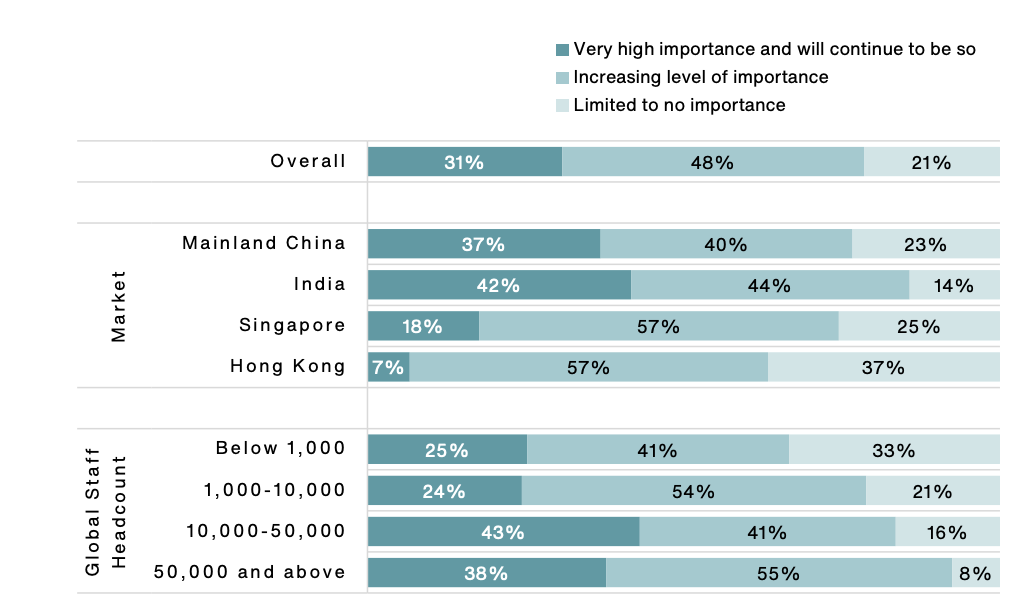
Less than a quarter of employers proactive about pay-related matters: report

Pay-related disclosures in Asia remain "inconsistent and reactive," according to a new Aon report, but the momentum of such policies seems to be increasing.
Aon's survey among 35 HR decision-makers in 13 locations in Asia looked at the state of pay disclosure in the region. It found that just 24% of employers have proactively communicated pay policies, practices, or guidelines to employees in some form.
Another 14% said they have communicated several rounds, while 42% said they have communicated it at least once.
"Despite the rising trend toward pay transparency, most organisations are taking a cautious approach," the report read. "Nearly 25% of the surveyed organisations say they have proactively disclosed some aspect of their pay-related matters - but for most, disclosure has been inconsistent and reactive."
By market, proactive communication on pay-related matters is strong in Mainland China (30%), India (32%), and Singapore (16%).

Source: 2023-2024 Aon Asia Pay Equity Survey Report
Publicly listed organisations are also "better" at pay transparency practices, according to the report, with 86% of them adopting some form and frequency than privately held organisations (74%).
Meanwhile, the top driver of pay transparency in the region is regulation and compliance, as cited by 72% of the respondents.
Other drivers behind pay transparency include their organisation's diversity, equity, inclusion, and belonging policy (58%), as well as peer practices (38%).
"Except for Japan, most Asian markets do not have specific pay equity and transparency guidelines," the report read. "However, they do have general provisions that encourage organisations to work toward achieving pay equity."
The low level of proactive communication comes despite massive support for pay transparency in Asia, according to the report.
It found that 31% of respondents consider pay transparency is important, while 48% said it is seeing an increasing level of importance to their organisation.

Source: 2023-2024 Aon Asia Pay Equity Survey Report
"Momentum is also growing in Asia, where almost 80% of the organisations we surveyed consider pay transparency important, even though few of the region's regulators have introduced transparency or disclosure requirements," the report read.
Respondents in India were most likely to say pay transparency has very high importance (37%), followed by those from mainland China (37%).
"Organisations are adopting pay transparency measures to differing degrees, based on factors such as their DEIB policy, peer practices, local market requirements, and the practices of their global headquarters," the report read.